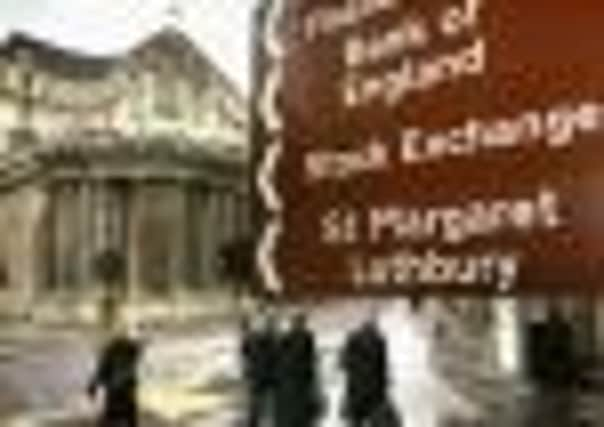US regulators set sights on UK bankers


The warning comes as executives of Standard Chartered face possible charges in the US over the alleged breach of sanctions against Iran.
Tom Stocker, a partner at law firm Pinsent Masons, said the actions of New York’s Department of Financial Services (DFS) against the bank marked what he expects will be a period of “heavy-handed” action by “overly aggressive” US regulators because of the perceived laxness of the UK authorities.
Advertisement
Hide AdAdvertisement
Hide AdStocker said: “We are going to see a lot more US regulators going after British-headquartered banks and companies.
“It is partly driven by wanting to be seen to take enforcement action; that it is politically better to be seen to be taking action against overseas companies rather than their own US companies. It is driven to an extent by them considering UK and European regulators to be ineffective in the action they take.”
He said US regulators often gave companies the opportunity to avoid prosecution in return for “eye-watering” fines. Analysts expect the DFS to levy charges of $700 million (£446m) on Standard. But he added that the case involving three former NatWest employees – Giles Darby, David Bermingham and Gary Mulgrew – who were extradited in 2006 to face charges linked to the Enron scandal should concern UK bankers.
“We have an extradition treaty with the States that is extremely weighted towards US law enforcement,” said Stocker. “People don’t have to show a prima facie case – reasonable suspicion is enough. If you look at the NatWest Three, there is precedent for this. I wouldn’t be surprised if we see Scottish and English businessmen at risk of extradition.”
The DFS last week ordered Standard Chartered to send representatives to a meeting on Wednesday to explain why its alleged breaches of records laws should not mean the loss of its state banking licence.
Some UK political figures, backed by Bank of England governor Sir Mervyn King, last week accused the DFS of seeking to undermine London as a financial centre, and called for US regulators to “refrain from making too many public statements until the investigation is completed”.
Benjamin Lawsky, a former prosecutor who leads the New York State banking regulator, has received both praise and criticism for a report accusing Standard Chartered of laundering $250 billion (£160bn) worth of transactions with Iranian institutions, which has been subject to sanction by the US since 1995. Lawsky is thought to have stunned other US authorities investigating the bank with his allegations.
Standard has strongly denied the claims, and said it had voluntarily approached agencies over transactions with the rogue state in 2010 including the DFS, the US Justice Department, the Federal Reserve Bank of New York and the New York district attorney.
Advertisement
Hide AdAdvertisement
Hide AdStocker argues that UK enforcement needs to improve to ease pressure on institutions caught up in US regulation.
He backs the UK introduction of plea bargains or Deferred Prosecution Agreements, which aim to encourage businesses to self-report instances of bribery and corruption in return for lenient treatment, and which are currently under consultation by Westminster.
But he is concerned that these tools are not being considered for use in Scotland by the Crown Office.